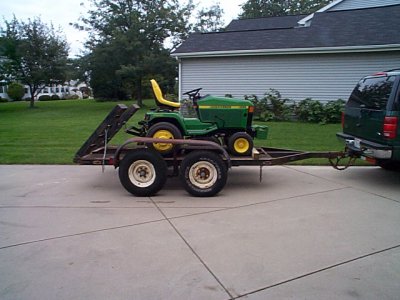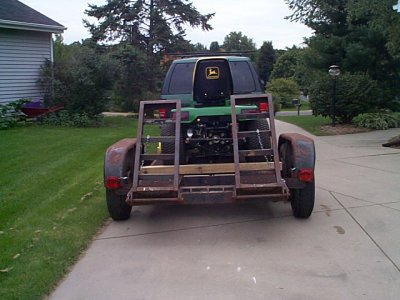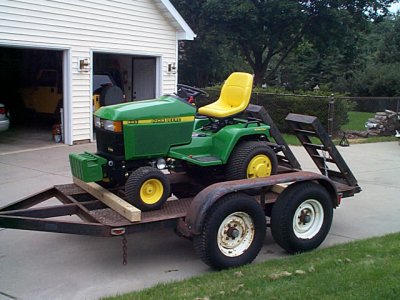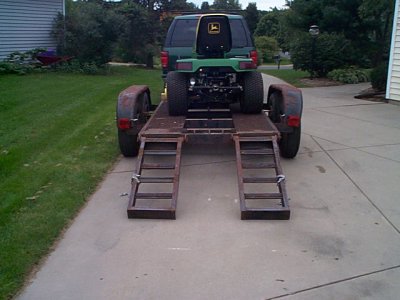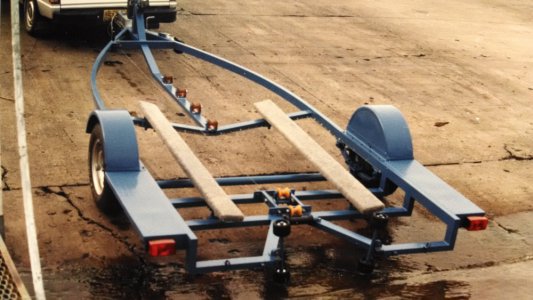Repurposing or refurbishing an existing trailer may not cost nearly as much as you think. I paid $100.00 for the trailer in my first post. As mentioned, it has two 5,400 lb. Dexter axles with 12" electric brakes. It didn't look quite like it does today when it was purchased almost 20 years ago. It needed new lights, brake shoes, tires, fenders, and a good cleaning. The lights and brakes came first at around $200.00. I used it with the old tires and poor fenders for a few years before upgrading.
Tires were next on the list. They didn't cost anything since I traded a local tire dealer 4 rims and tires, I had from an old Bronco for new trailer tires. After using it for about 5 years the wife suggested I put on some new fenders. They cost about $500.00. Nothing more had to be done for over 10 years when I decided it was time to replace the springs. As mentioned earlier they cost about $325.00. Not counting labor, I only have around $1,250.00 invested over close to 20 years, In those years it's traveled around 20,000 miles with loads from 1,000 lbs. to well over 6,000 lbs. with no problems.
When traveling with no load in the trailer I lower the air pressure to 40 psi. That keeps it from bouncing all over the road. Most roads it travels on are paved. Without paved roads and a single 8,000 lb. or 9,000 lb. axle the trailer may hard to control on unpaved roads or off road. I much prefer electric brakes to surge brakes on a trailer that's used off road. The uneven terrain often causes the surge brakes to engage. When using a trailer with surge brakes in construction sites it was a good policy to lock them out. The only problem then is to remember to reengage them when going back on the road.
Looking on Facebook Marketplace there are well over 5,000 trailers for sale in or near Montana. Many are outrageously priced for what they are, but other show some possibilities. This one struck me as a good possibility, and the asking price is only $750.00. It's been listed for a while, so the owner may be willing to negotiate.
Log into Facebook to start sharing and connecting with your friends, family, and people you know.

www.facebook.com
Another thing to look at might be military surplus trailers. They're tougher than anything on the commercial market, and usually go for around $500.00 or so.
ON Edit: A dual axle trailer will also reduce the tongue weight on the truck. The recommended tongue weight for a single axle trailer is 10% to 15% of the load. The recommended tongue weight for a dual axle trailer is 5% to 7% of the load. That's roughly half the weight needed on the tongue to keep the trailer stable.
Here are a couple pictures of the trailer early on its life. As you can see t's been a work in progress.



